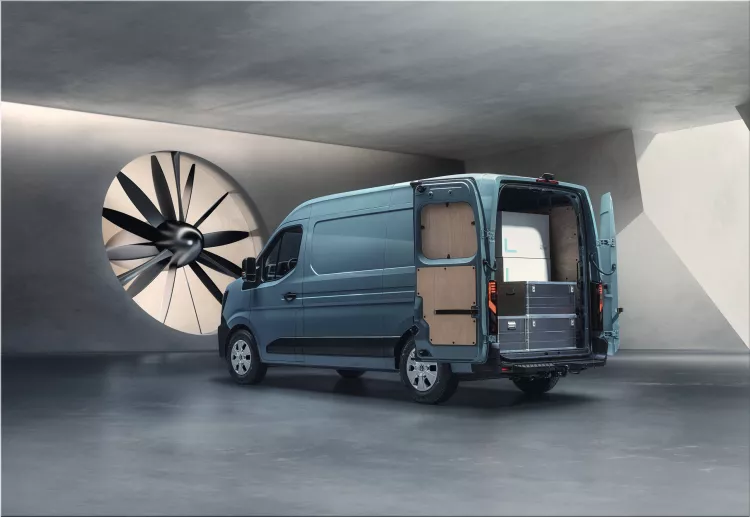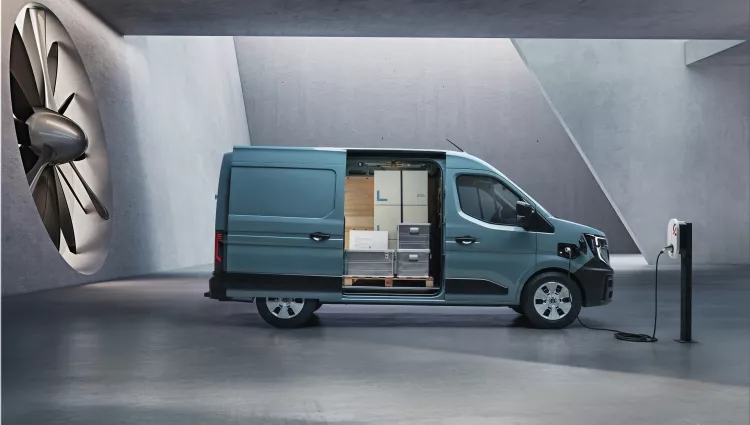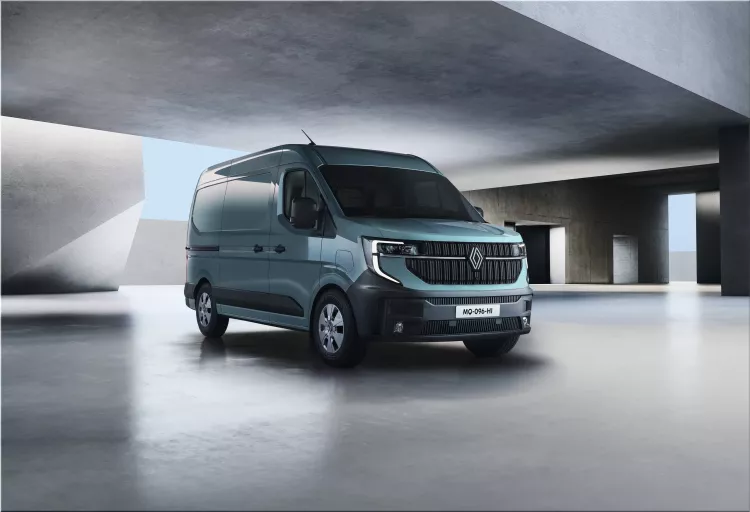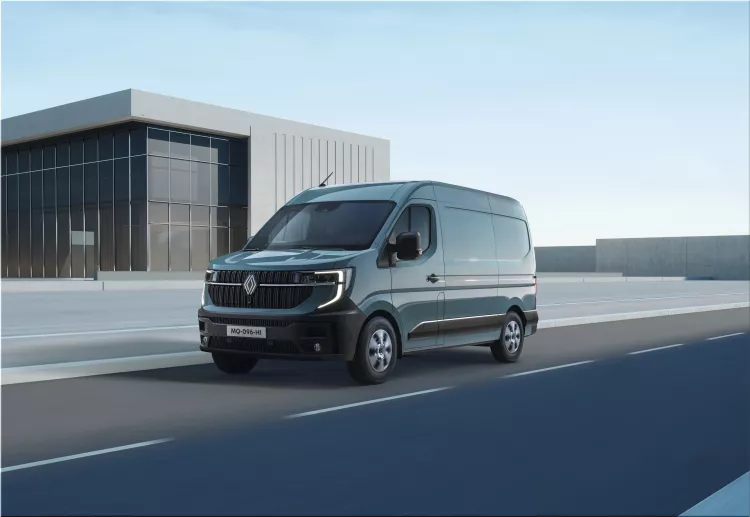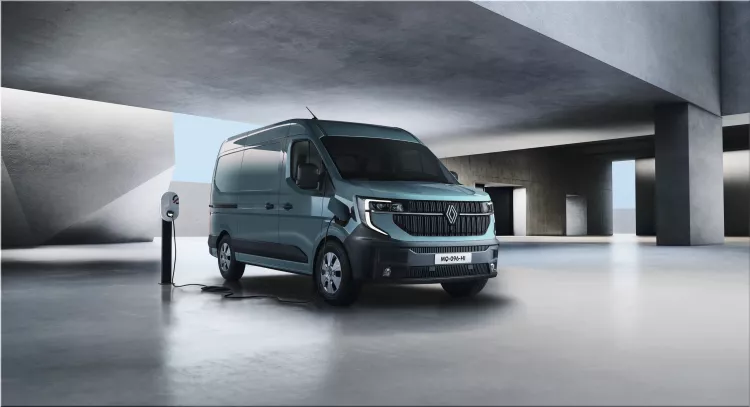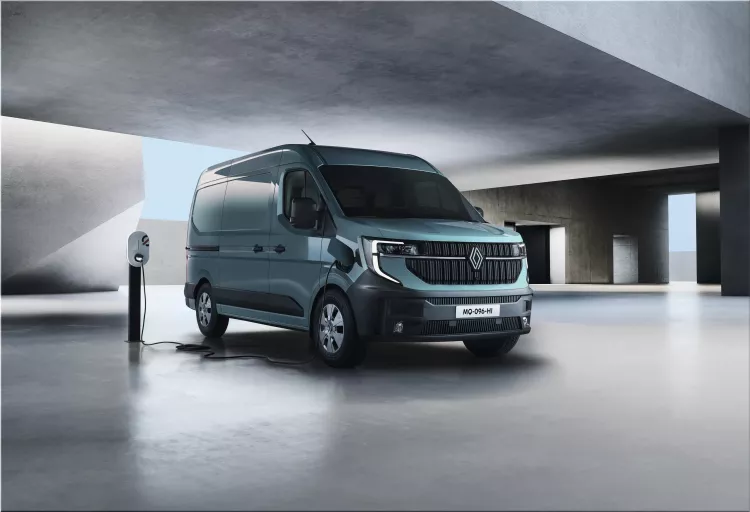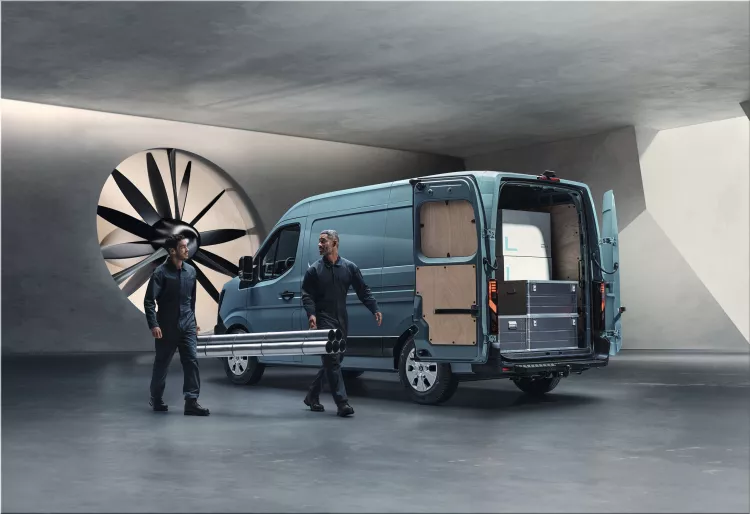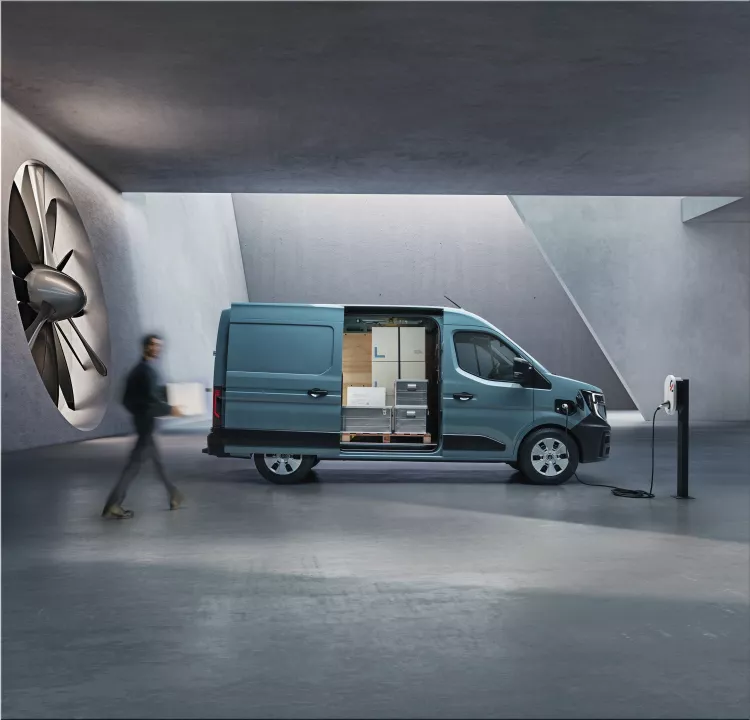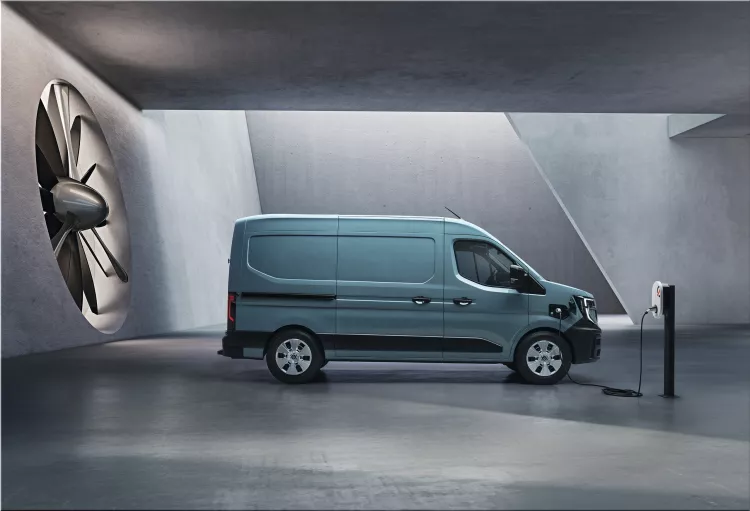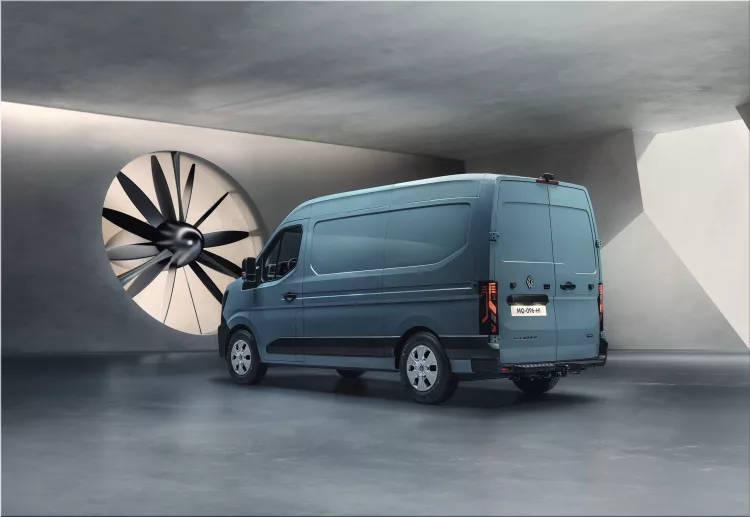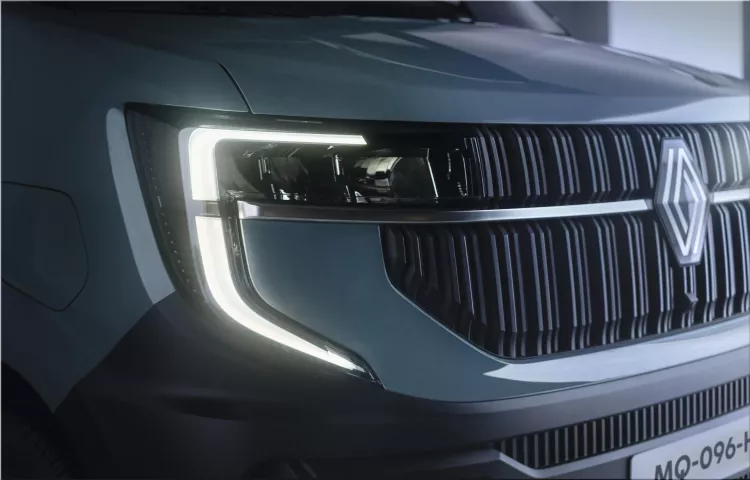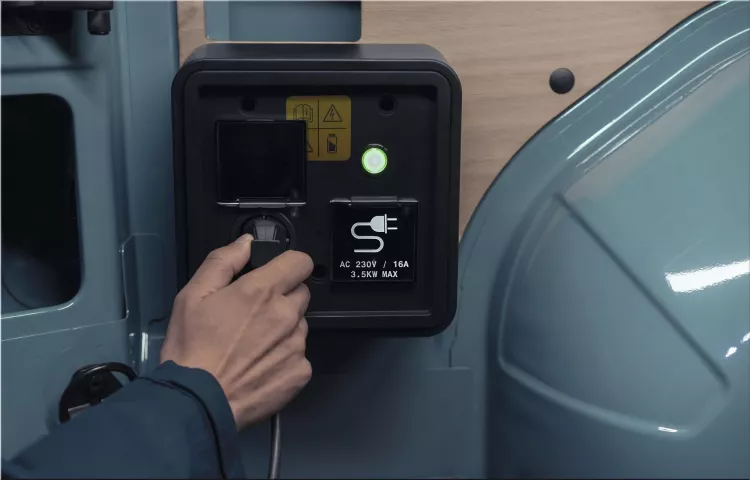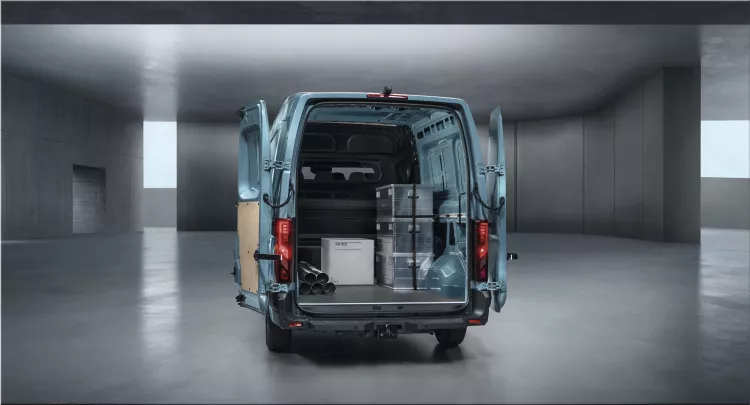Renault, one of the leading manufacturers of electric vehicles in Europe, has recently unveiled its new electric Renault Master, a large van that offers a remarkable driving range of 410 km (254 miles) on a single charge. This is a significant improvement over the previous version of the Master Z.E., which had a range of 190 km (118 miles). The new Renault Master electric van is expected to be available in spring 2024, and it will be a game-changer for commercial vehicle operators who need a reliable, spacious, and eco-friendly transport solution.
How Renault Achieved the Increased Range
The key to the increased range of the new electric Renault Master is the new 52 kWh battery pack, which replaces the 33 kWh battery of the previous model. The new battery pack comprises 12 modules, each containing 24 cells, weighing 350 kg (771 lbs). The battery pack is under the vehicle's floor, which does not affect the load volume or the payload capacity. The new electric Renault Master can carry up to 1,620 kg (3,571 lbs) of cargo, and it offers a load volume of up to 13 cubic meters (459 cubic feet), depending on the body configuration.
The new Renault Master electric van also features a more efficient electric motor, which delivers 75 kW (101 hp) of power and 225 Nm (166 lb-ft) of torque. The motor is coupled with a single-speed gearbox, which allows the vehicle to reach a top speed of 100 km/h (62 mph). The motor also has a regenerative braking function, which recovers energy when the vehicle slows down or brakes and feeds it back to the battery, extending the driving range.
How to Charge the New Electric Renault Master
The new Renault Master electric van can be charged using different types of charging stations, depending on the available power and the desired charging time. The vehicle is equipped with a Type 2 charging socket, which is compatible with most public and private charging stations in Europe. The vehicle also comes with a Mode 3 charging cable, which can be plugged into a wallbox or a public charging station with a power output of up to 22 kW. Using this cable, the vehicle can be charged from 0 to 80% in about 2 hours.
The vehicle also has an optional Combo 2 (CCS) charging socket, which allows the vehicle to use fast charging stations with a power output of up to 75 kW. Using this socket, the vehicle can be charged from 0 to 80% in about 1 hour. However, fast charging stations are not widely available in Europe yet, and they may be more expensive to use than regular charging stations.
The new electric Renault Master also has a smart charging function, which allows the vehicle to optimize its charging time and cost, depending on the electricity tariff and the driving schedule. The vehicle can be programmed to start and stop charging at specific times, using the My Renault app or the Easy Link multimedia system. This way, the vehicle can take advantage of off-peak electricity rates, and ensure that the battery is fully charged when the vehicle is needed.
How the New Electric Renault Master Compares to Other Electric Vans
The new electric Renault Master is not the only electric van on the market, but it is one of the most competitive ones, especially in terms of driving range and load capacity. Here is a comparison table with some of the other electric vans available in Europe:
| Model | Battery size | Driving range | Load volume | Payload capacity | Price |
|---|---|---|---|---|---|
| Renault Master Z.E. (new) | 52 kWh | 410 km (254 miles) | 8-13 m3 (282-459 ft3) | 1,620 kg (3,571 lbs) | €60,000 ($68,400) |
| Ford E-Transit | 67 kWh | 350 km (217 miles) | 9.5-15.1 m3 (335-533 ft3) | 1,616 kg (3,563 lbs) | €58,000 ($66,240) |
| Mercedes-Benz eSprinter | 55 kWh | 168 km (104 miles) | 11 m3 (388 ft3) | 891 kg (1,964 lbs) | €53,990 ($61,548) |
| Volkswagen e-Crafter | 35.8 kWh | 173 km (107 miles) | 10.7 m3 (377 ft3) | 970 kg (2,138 lbs) | €69,500 ($79,320) |
As the table shows, the new electric Renault Master has the longest driving range among electric vans, and it also has a competitive load volume and payload capacity. The new electric Renault Master is also cheaper than the Volkswagen e-Crafter and slightly more expensive than the Ford E-Transit and the Mercedes-Benz eSprinter. However, the price difference may be offset by the lower running costs and maintenance costs of the electric Renault Master, as well as the potential tax incentives and exemptions for electric vehicles in some countries.
Why the New Electric Renault Master is a Game-Changer for Commercial Vehicles
The new electric Renault Master is a game-changer for commercial vehicle operators needing a large van to handle long distances, heavy loads, and urban driving. The new electric Renault Master offers several benefits over conventional diesel vans, such as:
- Lower fuel costs: The new electric Renault Master consumes about 13 kWh of electricity per 100 km (62 miles), which translates to a fuel cost of about €1.56 ($1.78) per 100 km, based on the average electricity price in Europe. In comparison, a diesel van consumes about 8 liters of diesel per 100 km, which translates to a fuel cost of about €10.40 ($11.86) per 100 km, based on the average diesel price in Europe. This means that the new electric Renault Master can save about €8.84 ($10.08) per 100 km, or about €3,538 ($4,032) per year, assuming an annual mileage of 40,000 km (24,855 miles).
- Lower maintenance costs: The new electric Renault Master has fewer moving parts and less wear and tear than a diesel van, which means that it requires less maintenance and repairs. According to Renault, the new electric Renault Master can save about 30% on maintenance costs compared to a diesel van, which can amount to about €1,200 ($1,368) per year, assuming an annual mileage of 40,000 km (24,855 miles).
- Lower environmental impact: The new electric Renault Master emits zero tailpipe emissions, which means that it does not contribute to air pollution and climate change. The new electric Renault Master also has a lower carbon footprint than a diesel van, even when taking into account the emissions from the electricity production. According to Renault, the new electric Renault Master emits about 22 g of CO2 per km, based on the average carbon intensity of the electricity mix in Europe. In comparison, a diesel van emits about 211 g of CO2 per km, based on the average carbon intensity of the diesel fuel in Europe. This means that the new electric Renault Master can reduce the CO2 emissions by about 89%, or about 30 tons per year, assuming an annual mileage of 40,000 km (24,855 miles).
- Higher customer satisfaction: The new electric Renault Master offers a more comfortable and pleasant driving experience than a diesel van, thanks to its silent and smooth operation, its instant torque delivery, and its easy handling. The new electric Renault Master also offers a more modern and connected interior, with features such as the Easy Link multimedia system, the My Renault app, the wireless smartphone charging, and the digital instrument cluster. The new electric Renault Master can also enhance the image and reputation of the business, by showing its commitment to sustainability and social responsibility.
Conclusion
The new 2024 Renault Master is a game-changer for commercial vehicle operators who need a large van that can handle long distances, heavy loads, and urban driving. The new electric Renault Master offers a remarkable driving range of 410 km (254 miles) on a single charge, a competitive load volume and payload capacity, and a lower total cost of ownership than a diesel van. The new electric Renault Master also offers a more comfortable and pleasant driving experience, a lower environmental impact, and higher customer satisfaction. The new electric Renault Master is expected to be available in spring 2024, and it will be a game-changer for commercial vehicle operators who need a reliable, spacious, and eco-friendly transport solution. @via Renault.
New battery, greater autonomy, zero emissions: these are the main features of the new Nissan e-NV200. The new 40 kWh battery provides an autonomy that can go up to 280 km on the NEDC cycle and a little less in the city, making it the ideal… Continue reading
The commercial vehicle market is no exception as the world moves towards sustainable mobility. That's why Ford Pro, Ford's commercial vehicle division, has unveiled the latest addition to its electric lineup: the Ford E-Transit Courier.… Continue reading
If you are looking for a versatile, practical, and electric vehicle that can suit your active lifestyle, you might want to consider the new Citroen e-Berlingo. This is the… Continue reading
Citroen is one of the most innovative and iconic car brands in the world, with a history of producing vehicles that combine style, comfort, and technology. The Citroen e-C4 X is the latest example of this tradition, a fully electric… Continue reading

